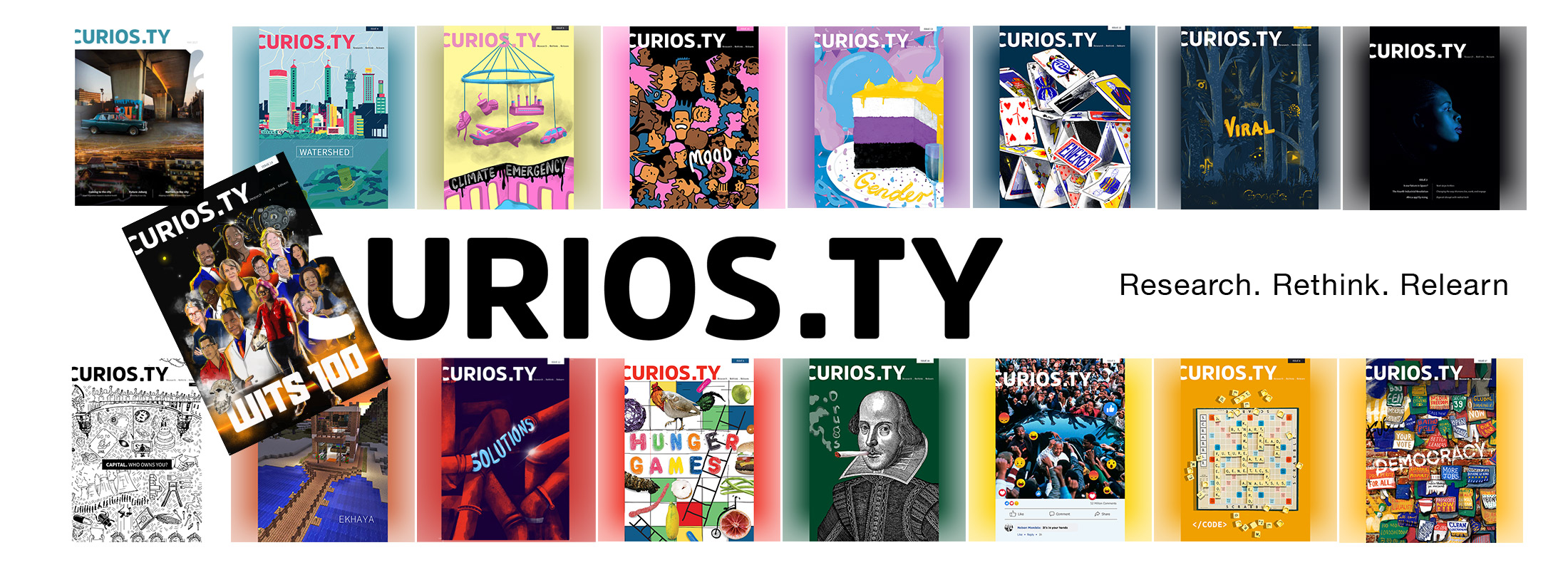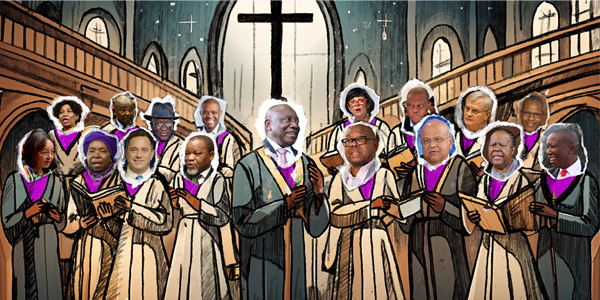
Religion and the state: A shifting cocktail of contradictions
- Sue de Groot
Many countries are grappling with religious challenges. Can political structures withstand the pressures of religious groups’ ‘New Right’ ideology?

Religion and politics have always been intertwined in South Africa. During the early years of National Party rule, the government-approved Christian church and the State were joined at the hip.
Conservative churches and politics used religion to help justify nationalism and apartheid – with some notable exceptions from people such as Beyers Naudé, the Afrikaans church leader who challenged racism and inequality from the pulpit.
It did not take long, however, for many religious institutions to take up cudgels against the discriminatory laws of the land.
Currently Academic Director of the Doctoral Programme in the Wits-Edinburgh Programme in Sustainable African Futures (WESAF), Barbara Bompani has studied politics and religion, and the way that they shape each other, for more than 20 years. (WESAF is a collaboration between the University of Edinburgh and Wits University.)
She came from the University of Bologna to South Africa to investigate the role that religion played in the struggle against apartheid towards the end of the 1990s. Her Master’s dissertation in political science was about religion and politics during apartheid, focusing particularly on mainstream Christian churches and councils such as the South African Council of Churches and the SA Catholic Bishops Conference, as well as on important leaders.
“I found that churches were some of the few civil spaces where politics played an important role before 1994,” says Bompani. “There was a lot of politics taking place in religious venues and it influenced religious debates. For example, a funeral could be a space to talk about politics during apartheid when other political spaces were banned.”
Bompani found a wealth of information in the Wits Historical Papers Research Archive.
“There is this amazing collection where I found documentation about the relevance of religious organisations and about international organisations funding churches which opposed apartheid.”
Leaders and followers of other faiths, such as Islam and Judaism, were also vocal and public in the anti-apartheid movement, but it is the Christian church that has changed most radically since South Africa became a democracy.
Apolitical churches?
Bompani remained in South Africa as a visiting PhD student at Wits. Her doctoral thesis also focused on religion and politics in this country, this time including traditional African churches.
“One of the interesting things for me was that in the literature, African Independent Churches were defined as apolitical, but this raised the question of what politics is. You can define it as the organised politics of a political party, as in a church supporting the African National Congress (ANC) or the Inkatha Freedom Party (IFP), but if you talk about democracy, values and rights, these are also political concepts, and these churches were embracing and promoting them every day.”
Bompani’s PhD research explored development and change in religion and politics between 1994 and 2000 and on the way the two were intertwined in the first years of democracy. The changes that happened after 1994 were significant, she says.
“There was a strong alliance between mainstream churches and the ANC. Church leaders were very vocal, energetic and organised, not only during apartheid but during the transition, keeping peace during very tense times.”
After 1994, these church voices became less strident. This, says Bompani, was partly a question of resources and priorities.
“Before apartheid ended, a lot of international funds were being channelled through the church – it was the first time that the European Union had funded religious organisations – but with the end of apartheid a lot of church funding stopped because there were other priorities. There was also a sense from mainstream churches that there was no longer such a need to be so public and so political.”
This opened up a space for other kinds of churches to fill. Pentecostalism/evangelism rose and became more vocal. Also, African Independent Churches became more public along with a renewed interest in African traditions which bled into politics under the Zuma presidency.
“I think what influenced the change in religion and politics and the shaping of one by the other in that time was about the change in energy and the different actors that emerged,” says Bompani.
A right to belong
Bompani is also an associate of the African Centre for Migration and Society, based at Wits, and has conducted research in East Africa, particularly Uganda. Both the US and Uganda are examples of how the religious right influences politics and politicians, some of whom will pragmatically campaign in churches because of their numerical voting power.
Bompani says that so-called ‘family values’ have infiltrated the heart of public conversations because they are pushed by the Pentecostalist actors into the political landscape.
“These organisations bring out important tensions within the public sphere: what’s right? what’s wrong? who belongs? who doesn’t belong? If you are not a ‘moral citizen’ you don’t belong to the moral community and you should be excluded – LGBTQIA+ people, for example, or sex workers, who may be considered as immoral subjects, see their rights denied. Religion changes the perception of what society is and what should be at the centre of the political agenda.”
Bompani believes that South Africa’s Constitution is strong enough to withstand challenges to the dignity and equality for all that is promised by this document.
“A liberal understanding of religion allows for diversity, whereas a conservative understanding does not. This dichotomised warfare between good and evil is theological but not always applied in nature. However, democratic structures in South Africa are very strong. It’s society that worries me. What if you change the opinions of society so much that society wants to change the political structure?”
Whichever side of the divide on which one stands, we should not shy away from these arguments and counter-arguments. Democracy thrives on diversity and debate, and the diversity of debate.
- Sue de Groot is a freelance writer.
- This article first appeared in Curiosity, a research magazine produced by Wits Communications and the Research Office.
- Read more in the 17th issue, themed: #Democracy, we turn to our academics and professional staff for their research, perspectives and commentary on both the progress and shortcomings in our democracy, and democracies elsewhere.

